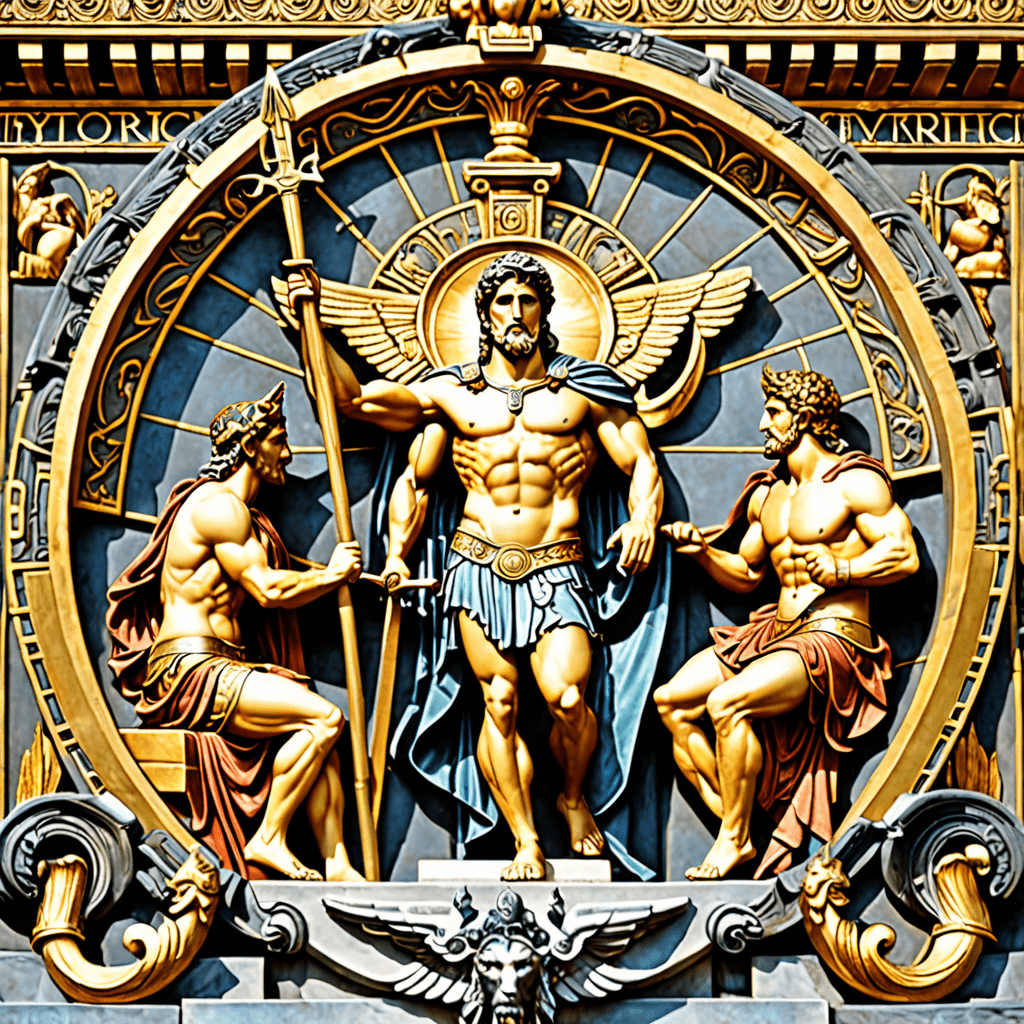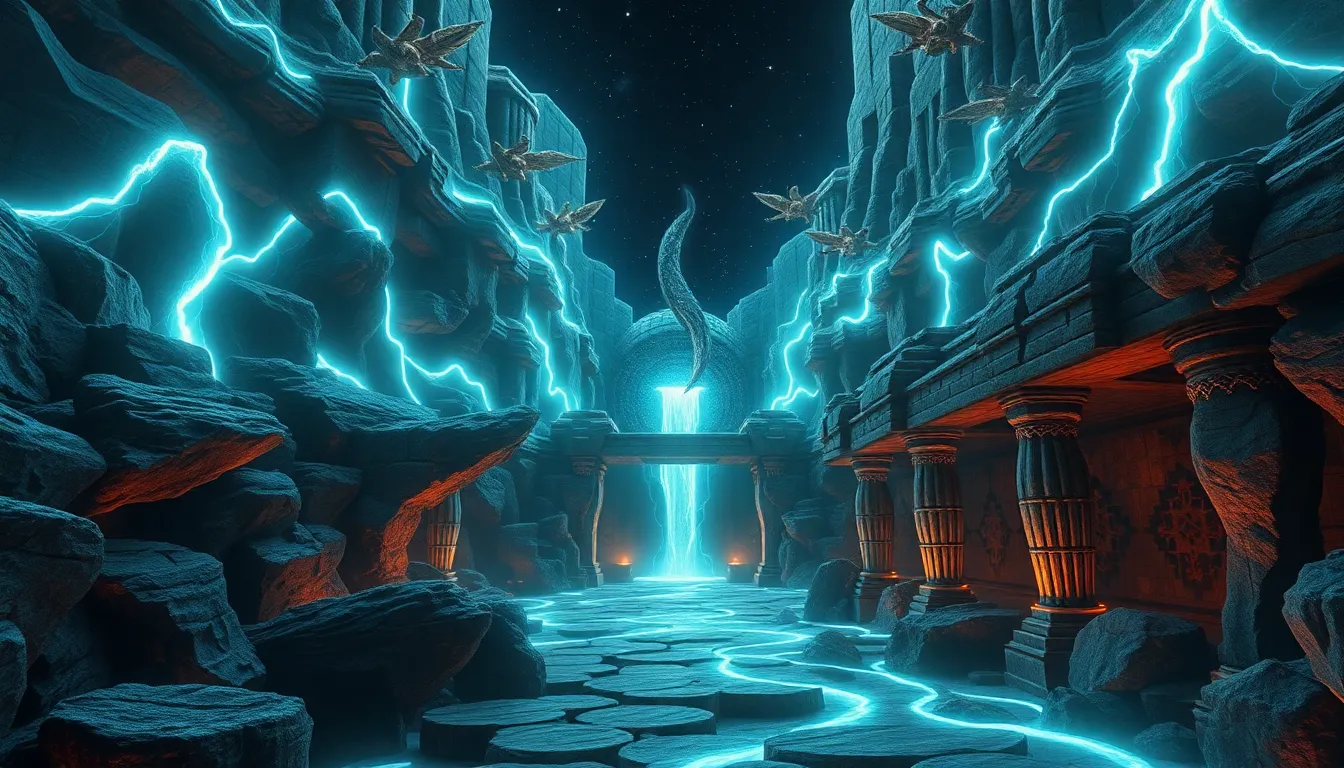Cultural Hero Myths: The Stories That Challenge Us
I. Introduction to Cultural Hero Myths
Cultural hero myths are narratives that celebrate individuals who embody the ideals and values of a society. These myths often portray heroes as larger-than-life figures who embark on extraordinary journeys, facing challenges that test their character and resolve. They serve as powerful tools for imparting moral lessons, inspiring hope, and shaping collective identity.
These myths are crucial in shaping societal values, as they reflect cultural aspirations and fears. They offer a lens through which communities understand their history and future. This article aims to explore the significance of cultural hero myths, their evolution, characteristics, and impact on contemporary society.
II. Historical Context of Hero Myths
Hero myths have their roots in ancient civilizations, where they often emerged as part of oral traditions. From the epic tales of Gilgamesh in Mesopotamia to the legends of Hercules in Greek mythology, these stories served to communicate societal norms and values.
Over time, hero narratives have evolved, adapting to the changing contexts of the societies that tell them. While ancient myths focused on gods and demigods, modern narratives often highlight ordinary individuals who rise to greatness.
Cross-cultural comparisons reveal fascinating similarities and differences in hero myths. For example, while many cultures celebrate the warrior hero, others emphasize the role of the wise leader or the compassionate caregiver. These variations reflect diverse cultural values and historical experiences.
III. Characteristics of Hero Myths
Cultural heroes often share common traits that resonate across different societies. These traits include:
- Bravery: Heroes confront danger and adversity head-on.
- Self-Sacrifice: They often put the needs of others before their own.
- Resilience: Heroes overcome obstacles and setbacks in pursuit of their goals.
The hero’s journey is a central narrative device that outlines the stages a hero undergoes, often including a call to adventure, trials, and ultimately, transformation. This framework is not only compelling but also serves as a metaphor for personal growth.
Symbolism and archetypes play significant roles in hero myths, providing deeper meanings to the stories. For instance, the hero often represents the struggle between good and evil, while the journey symbolizes the quest for self-discovery and purpose.
IV. The Role of Heroes in Challenging Social Norms
Heroes often act as catalysts for social change, challenging existing norms and inspiring others to follow suit. They embody the possibility of transformation and justice, pushing against the boundaries of what is acceptable or expected.
Examples of heroes who defied conventions include:
- Joan of Arc: A peasant girl who led an army and was later canonized for her bravery.
- Nelson Mandela: A political prisoner who became the first Black president of South Africa, advocating for reconciliation and equality.
The impact of these myths on contemporary values is profound. They inspire movements for justice and equality, encouraging individuals to challenge the status quo and strive for a better world.
V. The Dark Side of Hero Myths
While heroes are often idealized, there is a danger in this glorification. The romanticized notion of heroism can lead to unrealistic expectations and the dismissal of complex realities.
Some myths perpetuate harmful stereotypes, reinforcing narrow definitions of strength and success. For instance, the portrayal of male heroes often emphasizes aggression and dominance, while female heroes may be relegated to roles of support or sacrifice.
Case studies of flawed heroes reveal the complexities of their legacies. Figures like Christopher Columbus, celebrated for his exploration, are now critiqued for their roles in colonization and oppression.
VI. Cultural Hero Myths in Modern Media
In contemporary media, heroes are depicted in diverse ways, reflecting the complexities of modern society. Films and literature explore various representations of heroism, from traditional protagonists to more nuanced figures.
The rise of anti-heroes, characters who possess both heroic and villainous traits, has garnered significant attention. These characters resonate with audiences who appreciate the moral ambiguity and depth they bring to storytelling.
Recent cultural phenomena, such as the superhero movie genre, illustrate this evolution. Superheroes often embody societal ideals, but they also grapple with personal flaws and ethical dilemmas, making them more relatable.
VII. The Relevance of Hero Myths in Today’s Society
Heroes continue to play a vital role in contemporary movements, serving as symbols of hope and resilience in the face of adversity. From climate activism to social justice campaigns, modern heroes inspire action and commitment to causes that matter.
Myths adapt to reflect current issues, incorporating themes of diversity, inclusivity, and environmental responsibility. New narratives emerge that challenge traditional notions of heroism, emphasizing collaboration and community over individualism.
The potential for new hero narratives is vast, as society evolves and seeks to address pressing challenges. These stories can inspire future generations to become agents of change.
VIII. The Psychological Impact of Hero Myths
Hero myths significantly influence individual identity and aspirations. They provide models of behavior, guiding people in their pursuits and helping them navigate challenges.
Psychological theories suggest that hero worship can have both positive and negative effects. While it can inspire individuals to achieve greatness, it may also lead to unrealistic comparisons and pressures.
Diverse representations in hero narratives are essential for fostering a sense of belonging and validation among various groups. When people see themselves reflected in hero stories, they are more likely to feel empowered to pursue their dreams.
IX. Critiquing and Redefining Hero Myths
Critical engagement with hero myths is necessary to understand their implications and challenge traditional narratives. Emerging stories that redefine heroism emphasize qualities like vulnerability, compassion, and collaboration.
New cultural heroes are reshaping definitions of success and bravery, moving away from the archetype of the lone hero to celebrate collective efforts and community-driven change.
X. Conclusion: The Future of Cultural Hero Myths
The future of cultural hero myths lies in their ability to adapt and resonate with contemporary audiences. As society grapples with complex issues, the narratives we create will continue to reflect our values, struggles, and aspirations.
By embracing diverse representations and critical perspectives, we can cultivate a richer understanding of heroism that inspires individuals to challenge norms and strive for a just and equitable world.


